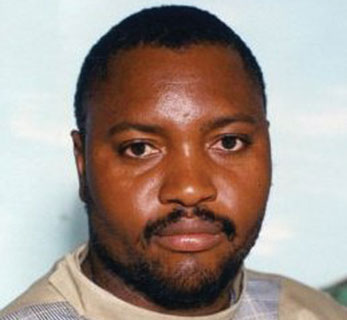
ON Friday April 18 most patriotic Zimbabweans were busy celebrating the 34th independence anniversary.
It was not so for Lefatse of Gwanda who chose to engage in her usual routine of irking a living out of the unforgiving bowels of the earth.
Almost oblivious of the fact that April 18 was her birthday, Lefatse literally engaged in gold digging by pounding the earth for minuscule yet elusive particles of gold that are embedded in the clay and gravel soil. Her diligence in working the soil was a living testimony of desperation.
Health and safety considerations were a far cry from modernity where humans flick small switches to get light and effortlessly turn a tape for clean water.
While she toiled below the surface, the booming echoes of the public address system that was being used at the distant Phelandaba Stadium reminded Lefatse of the occasion. The stadium was hosting the provincial independence celebrations. Somehow the ongoing celebrations made her work faster as if to spite or to belittle the occasion.
Work continued into the night with light provided by some generators. The earth moving superwoman only retired for the night after the generator had run out of fuel. Her attempt to fall asleep in her temporary dwelling was thwarted by the noise from the stadium.
More frustration gripped her as she had toiled the earth yet the earth had refused to yield any gold.
She found herself reflecting on what she had done for herself, for her family and for her country. She also reflected on what the country had done for her and for her poor village in the mineral-rich province of Matabeleland South. Her reflections upset her even more as she realised the futility of being a born-free.
- Chamisa under fire over US$120K donation
- Mavhunga puts DeMbare into Chibuku quarterfinals
- Pension funds bet on Cabora Bassa oilfields
- Councils defy govt fire tender directive
Keep Reading
She turned to her late mother’s narrative of her life for inspiration. Her mother had told her that she was born almost at that moment Prince Charles received the Union Jack at Rufaro Stadium in a ceremonial gesture signifying the end of the colonial era in Zimbabwe.
She was named Lefatse (Land) as her parents anticipated getting acres of fertile land in the expansive cattle ranches. She remembered growing up in Gungwe with very little to worry about. She could not testify on the disturbances at Entumbane and other cantonments on account of her age then.
She was also too young to recall the dissident menace and the State machinery that carried out reprisals against the perceived supporters of the armed malcontents. She had no idea how violent the first post-independence general elections of 1985 were.
She had no recollections that people like Mark Dube, Enos Nkala and Calistus Ndlovu actively terrorised the people of Beitbridge, Gwanda, Esigodini, Plumtree and other areas of Matabeleland.
Lefatse was lucky to have escaped the physical and mental scars of the dissident error by virtue of her innocence. She could not vouch for Zanu PF brigands going about forcing people to buy their party’s membership cards. Somehow she remembered the celebrations after the signing of the December 1987 Unity Accord.
The Willowvale scandal meant nothing to her. Her mother could not have cared much either as the scandal affected only the rich and famous. She remembered her father remarking that the Willowvale scandal was a case of enterprising people satisfying the demand and supply complexity.
Lefatse had heard of something known as Esap, yet her reflections could not bring her to understand what it was all about. She had recollections of the acronyms ZUM and FORUM but nothing more, thanks to her political naïvety and her humble rural upbringing in Gungwe.
She recalled that for a born-free, the most painful time of her life was during the early nineties when she was about ten. She saw her father die from a long illness at the initial phase of Aids-related deaths. As if the skies and the gods had abandoned her, her mother succumbed to the disease two years later.
Once an orphan, Lefatse had to mature quickly in order to compete effectively in an environment that promoted the survival of the fittest. She saw most of her relatives literally turning into skeletons before perishing.
She saw hunger, disease and pestilence. She saw the economy nose-dive into oblivion. She saw the opposition MDC making inroads. She saw Zanu PF using violence the new opposition started experiencing.
She saw ex-combatants getting huge pay-offs before they invaded farms. She witnessed inflation and the worst economic outlook any country could face.
She held unto zillions of worthless Zim dollars. She saw the contentious elections, the mock run-off of the presidential election and the eventual inception of the GNU. She saw the death of economic sanity.
She saw the onset of the informal economy which she became part of. She saw new informal miners claiming destructive mining concessions around the country.
The land is truly back to its rightful owners yet the so-called born-frees have only scars of hardship to show for it. Being born free means nothing. Surely some people who were born in bondage fare better than most of Zimbabwe’s born-frees.
Masola waDabudabu is a social commentator










